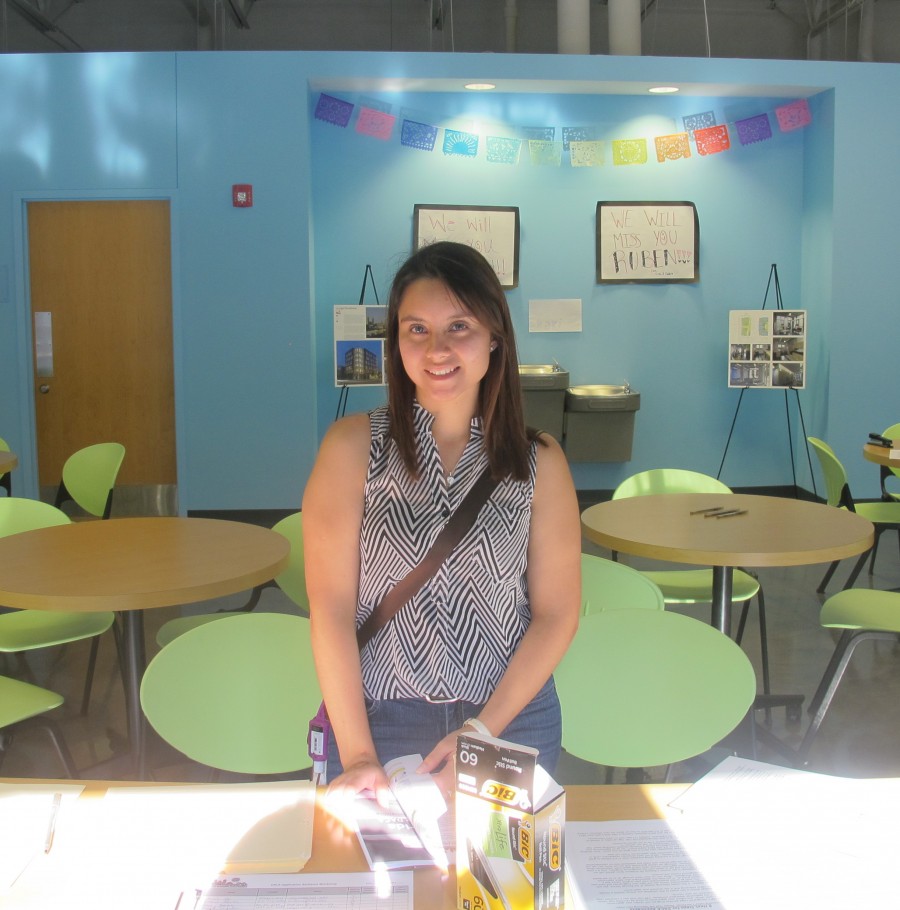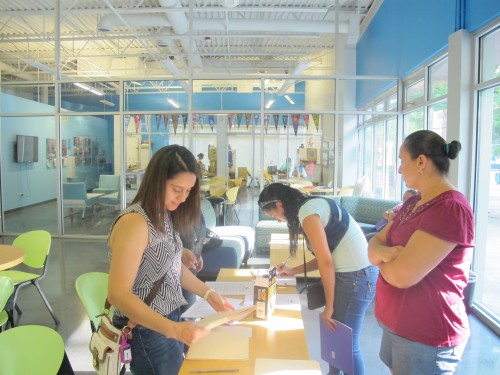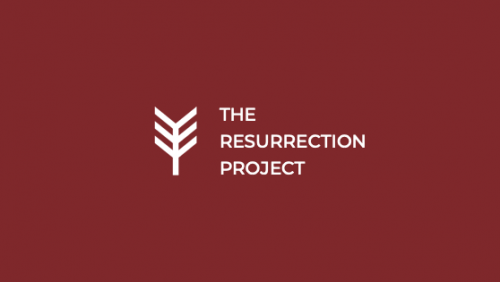Click here to view the 2022 Annual Report.
DACA applicant returns as a volunteer

by Isabelle Barany
It’s Monday morning at the Zocalo and there is a buzz of activity as children gather to receive free summer meals.Staff from the Lincoln Park Zoo arrives to implement a community engagement initiative to install cameras to monitor bats at St. Vitus.
Meanwhile, inside La Casa Resource Center staff meets with prospective students, and in the conference room community members are attending a Deferred Action for Childhood Arrivals (DACA) workshop. Attendees cluster around tables looking over forms and work one-on-one with TRP staff to determine eligibility.
Near the front of the conference room, a young woman sits by a table and registers those attending the workshop. Her name is Maybeline De Santiago, and a year ago she was one of the applicants herself. Now, after applying for DACA through a TRP workshop, De Santiago volunteers at the workshops in order to help provide the same service that TRP provided to her. In 2013, De Santiago saw a flyer for a TRP DACA workshop at her church, St. Pius. DACA, an executive order from the Obama Administration, provides temporary protection from deportation for undocumented immigrants who entered the country before the age of 16. However, applicants must meet certain legal and educational qualifications. De Santiago was not sure if she qualified.
In 2013, De Santiago saw a flyer for a TRP DACA workshop at her church, St. Pius. DACA, an executive order from the Obama Administration, provides temporary protection from deportation for undocumented immigrants who entered the country before the age of 16. However, applicants must meet certain legal and educational qualifications. De Santiago was not sure if she qualified.
She attended the workshop to understand more. “It was a great opportunity to get informed about it,” she says, “and learn what I might need.” She was impressed with how organized the workshop was, and when she learned that she qualified, she decided to complete her application with the assistance of TRP.
She appreciated the support that the workshop provided for what she felt was an overwhelming process of looking for documents. After completing the workshop, she felt confident about her application. “I was happy because I felt secure that I had everything I needed.”
Now, De Santiago attends the workshops not as a student of the process, but as a teacher. After attending a mandatory TRP training for workshop volunteers, De Santiago began assisting workshop attendees. Beyond registering attendees and managing the workshop checklist to ensure that the applicants have all of their documents, De Santiago makes herself available to answer questions.
She realizes that as a former workshop participant she is in a privileged position to assist the current participants.
“When you know there are people going through the same thing you went through,” she says, “you can help them out more because you lived through it.”
Many of the workshop participants are unsure if they qualify and usually have questions. De Santiago notes that many potential applicants are hesitant to apply not because they can’t obtain the right documents, but because many don’t know what they need. It is estimated that out of all those in the U.S. who are eligible for DACA, only 60% have applied. De Santiago wants to help everyone, especially that other 40% who just need that little extra help to apply for DACA.
De Santiago relishes giving attendees a new piece of information. “There may be something they haven’t heard from someone else, and maybe I can help them out.” In addition, by helping applicants become informed, TRP also protects against applicants being misinformed. “People sometimes wonder, ‘If I have this document, will it help me out?’” she explains. “Having an organization like TRP really helps.”
De Santiago is modest when asked why she became involved.“I like to help the community and it helps people to know what they need, and make a change in their lives.”
Maybeline De Santiago has participated in TRP’s programs in multiple ways, and, like TRP, will continue to look for ways to make her community healthier.
(The next DACA workshop is on September 6 at St. Pius Parish. Questions about DACA workshop or application process? Contact Julie Pellerite at 312-880-1892 or at [email protected])


